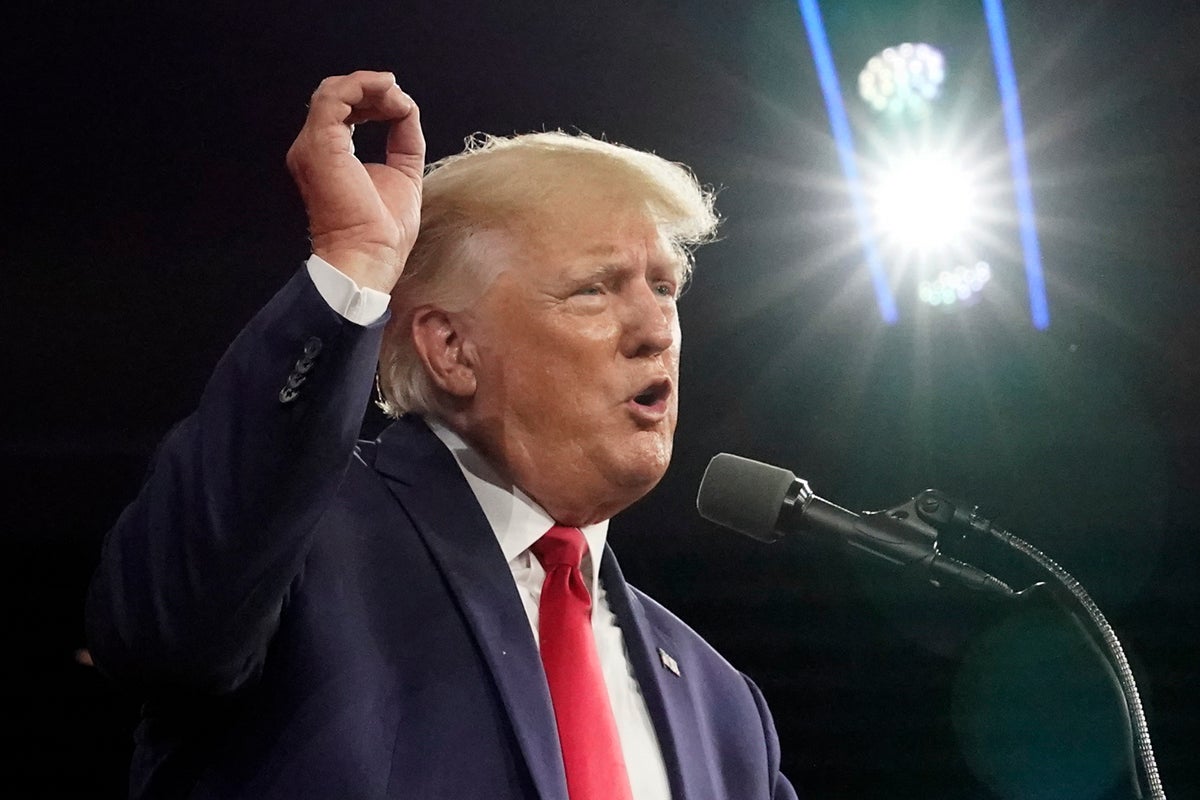
A federal judge in New York has thrown out a lawsuit former president Donald Trump had brought in hopes of winning a court order barring New York Attorney General Letitia James from investigating him and his eponymous real estate company.
Mr Trump filed suit against Ms James on 20 December after her office brought an action in New York state court to compel him to appear for a deposition as part of her office’s long-running investigation into whether the Trump Organization engaged in fraudulent business practices by inflating property values when seeking bank loans and deflating them when calculating taxes owed to the government.
In court documents, the former president accused Ms James of conducting an investigation that was “no way connected to legitimate law enforcement goals” as part of a mission “guided solely by political animus and a desire to harass, intimidate, and retaliate against a private citizen who she views as a political opponent,” citing statements she made about him during her 2018 campaign for the attorney general’s position.
But District Judge Brenda Sannes dismissed the lawsuit on grounds that Supreme Court precedent precludes her from interfering in state court matters, citing ongoing litigation between Mr Trump and Ms James’ office over whether Mr Trump will be made to testify as part of her long-running probe.
She also said a motion to dismiss filed by Ms James’ office properly invoked another precedental doctrine which requires federal courts to refrain from interfering in state court cases that implicate “an important state interest”.
“Here, the state’s interest in investigating and enforcing its laws is an important state interest,” she wrote.
She added that a “bad faith” exemption to the rule which requires federal courts to stay out of state matters did not apply because Ms James’ probe into the Trump Organisation originated after his former attorney and fixer, Michael Cohen, told Congress that Mr Trump’s company frequently manipulated its’ own real estate valuations to obtain bank loans and lower tax rates, and noted that New York State courts have routinely ruled in her favour when Mr Trump has challenged her office’s subpoenas.
“Defendant commenced the New York proceeding on August 24, 2020, with a forty-five-page petition seeking subpoena compliance, pursuant to her statutory authority to investigate fraudulent or illegal business activity ... and Justice Engoron has repeatedly granted Defendant’s motions to compel,” she wrote. “While Plaintiffs point to Defendant’s many comments, which they argue illustrate Defendant’s personal animus toward Mr. Trump and evince an intent to retaliate for or stifle Plaintiffs’ free speech, on this record the Court finds that Plaintiffs have not established that the subpoena enforcement proceeding was commenced for the purpose of retaliation”.
“The fact that Defendant’s public statements reflect personal and/or political animus toward Plaintiffs is not, in and of itself, sufficient,” she added.
Ms James hailed the decision in a statement noting that courts “time and time again” have “made clear that Donald J. Trump’s baseless legal challenges cannot stop our lawful investigation into his and the Trump Organization’s financial dealings”.
“No one in this country can pick and choose how the law applies to them, and Donald Trump is no exception. As we have said all along, we will continue this investigation undeterred,” she said.







